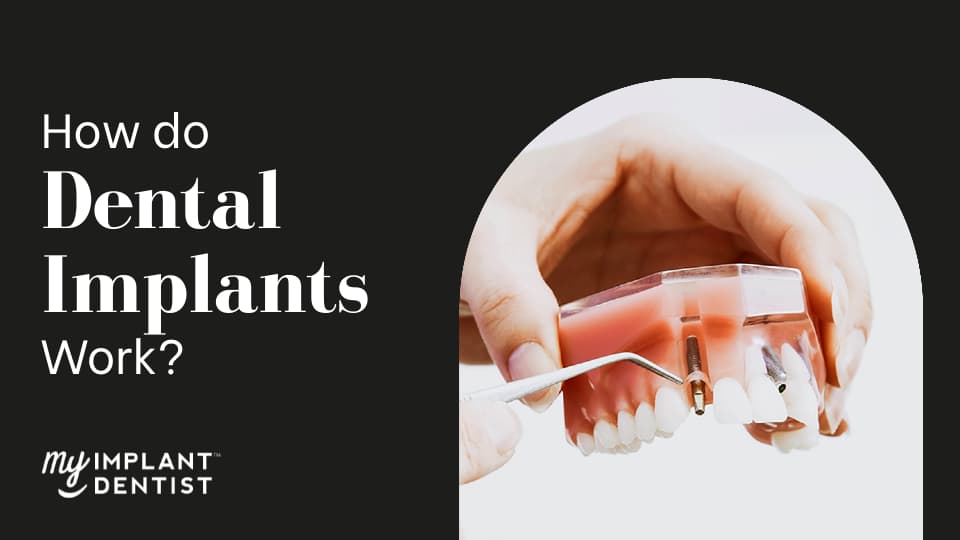- Dental implants are a popular and effective solution for replacing missing teeth.
- The dental implant procedure involves consultation and treatment planning, implant surgery, healing, and osseointegration.
- There are two main types of dental implants: endosteal and subperiosteal.
- Dental implants offer several benefits, such as natural appearance, durability, improved oral health, and increased confidence.
- Not everyone is a suitable candidate for dental implants, and the procedure does come with risks and complications.
- A dental implant can be used to replace one or multiple missing teeth.
- In cases of severe bone loss, a bone graft may be necessary before the implant can be placed.
- The cost of a dental implant can vary depending on several factors, with the location of the dental practice being a major factor.
Dental implants are a popular and effective solution for people who have lost one or more teeth due to injury, disease, or decay.
But, how do these small metal posts, which are surgically placed into the jaw, work to replace missing teeth?
In this article, we will explain the dental implant procedure, the different types of implants available, the benefits of choosing dental implants in Perth, and the considerations for candidates.

Contents
- 1 Understanding Dental Implants
- 2 Dental Implant Procedure
- 3 Types of Dental Implants
- 4 Benefits of Dental Implants
- 5 Candidates for Dental Implants
- 6 Risks and Complications of Dental Implants
- 7 Maintaining Dental Implants
- 8 Frequently Asked Questions
- 8.1 How long does the dental implant procedure take?
- 8.2 How much do dental implants cost?
- 8.3 Can anyone get dental implants?
- 8.4 Are dental implants painful?
- 8.5 Can I eat and speak normally with dental implants?
- 8.6 Can dental implants fail?
- 8.7 Can I get a dental implant if I have bone loss in my jaw?
- 8.8 Can I replace multiple teeth with dental implants?
- 9 Conclusion
Understanding Dental Implants
First, let’s start by defining what dental implants are. A dental implant is a small, screw-like post that is made of biocompatible materials such as titanium.
The implant is surgically inserted into the jawbone to replace the root of the missing tooth. This allows for a stable foundation for an artificial tooth, such as a crown or denture, to be placed on top.
Dental implants aim to replace missing teeth and restore function and aesthetics to the patient’s smile.
Dental Implant Procedure
The dental implant procedure typically involves three steps: consultation and treatment planning, implant surgery, and healing and osseointegration.
Initial Consultation and Treatment Planning
During the initial consultation, the dentist will evaluate your oral and general health, as well as the amount and quality of the jawbone. If you do not have enough jawbone, you may need to have a bone grafting or sinus lift surgery
They will also discuss the patient’s goals and needs, and together, develop a treatment plan.
Implant Surgery
The implant surgery is usually performed under local anaesthesia, and it involves making an incision in the gum to expose the jawbone.
The implant is joined to the jawbone and the incision is closed with sutures. The patient will be given instructions on how to take care of the surgical site as it heals.
Healing and Osseointegration
Once the implant is placed, the jawbone will grow around it. This process is known as dental implant osseointegration.
This process can take several months to complete, during which time the patient will need to avoid putting pressure on the implant and follow a soft food diet.
Once osseointegration is complete, an abutment (a small connector) is placed on the implant and an artificial tooth is attached on top.
Types of Dental Implants
There are two main types of dental implants: endosteal and subperiosteal.
Endosteal Implants
These implants are the most popular type. They are placed directly into the jawbone, and they look like small screws.
Subperiosteal Implants
These are used when there is not enough jawbone to support an endosteal implant. They are placed under the gum but on the jawbone. These implants consist of a metal frame that is anchored to the jawbone.
Once osseointegration is complete, the frame protrudes through the gum and an artificial tooth is attached on top.
Benefits of Dental Implants
Dental implants offer several benefits over other tooth replacement options, such as dentures or bridges. Some of the benefits include:
Natural Appearance
Dental implants look and function just like natural teeth, allowing patients to smile and speak with confidence.
Durability
Dental implants are designed to last a lifetime with proper care and maintenance.
Improved Oral Health
Dental implants do not require teeth reduction, as is the case with bridges. They also help to preserve the jawbone and prevent bone loss.
Increased Confidence
Since dental implants look and feel exactly like natural teeth, they give you confidence and an attractive smile. You will no longer have to cover your mouth when you smile or feel ashamed when you talk.
Candidates for Dental Implants
Not everyone is a suitable candidate for dental implants. Some considerations include:
- Good General and Oral Health: Patients should be in good general health and have a healthy mouth free of active gum disease.
- Adequate Jawbone Structure: The jawbone must be strong enough to support the implant. If the jawbone is too thin or too soft, a bone graft may be needed.
- Willingness to Commit to the Procedure and Aftercare: Dental implant treatment can take several months to complete, and patients must be willing to commit to regular dental visits, good oral hygiene, and a healthy diet.
Risks and Complications of Dental Implants
As with any surgical procedure, there are risks and complications associated with dental implants. Some possible complications include:
Surgical Complications
These may include infection, bleeding, or nerve damage. Ensure you follow up with your dentist.
Implant Failure
Although rare, implant failure can occur if the implant does not fuse properly with the jawbone.
Infection
If the implant becomes infected, it may need to be removed. Always ensure your dentist checks you for any underlying dental disease and get treatment immediately if there is an infection.
Maintaining Dental Implants
Dental implant maintenance requires the same care as natural teeth. This includes regular dental visits, good oral hygiene, and a healthy diet. Patients should also avoid habits that can damage the implant, such as biting on hard objects or grinding their teeth.
Frequently Asked Questions
How long does the dental implant procedure take?
The dental implant procedure typically takes several months to complete. This is because it includes a healing period for the implant to fuse with the jawbone. The initial consultation, treatment planning, and surgery can take several weeks to a few months.
How much do dental implants cost?
The cost of dental implants can vary depending on several factors. It is best to consult with a dentist to get a more accurate estimate.
Can anyone get dental implants?
Not everyone is a suitable candidate for dental implants. Candidates should have good oral and general health, adequate jawbone structure, and be willing to commit to the procedure and aftercare.
Are dental implants painful?
The surgical procedure for placing dental implants is usually performed under local anaesthesia and patients may experience some pain or discomfort afterward. However, this can be managed with over-the-counter pain medication and following post-operative instructions provided by the dentist.
Can I eat and speak normally with dental implants?
Yes. Once the implant surgery has been completed, you can eat and speak normally.
Can dental implants fail?
Although dental implants are highly successful 95% of the time , dental implants can fail if they do not fuse properly with the jawbone or if they become infected. Regular dental check-ups and good oral hygiene can help prevent implant failure.
Can I get a dental implant if I have bone loss in my jaw?
In cases of severe bone loss, a bone graft may be necessary before the implant can be placed.
Can I replace multiple teeth with dental implants?
Yes, dental implants can be used to replace one or multiple missing teeth. Your dentist will recommend the best approach for your specific case during the consultation.
Conclusion
Dental implants offer a natural appearance, durability, improved oral health, and increased confidence.
If you are considering dental implants, it is important to consult with a dentist to discuss if you are a suitable candidate and any questions you may have.
With proper care and maintenance, dental implants can last a lifetime and provide a stable foundation for an artificial tooth, allowing you to enjoy all the benefits of natural teeth again.
Ready to say goodbye to missing teeth and hello to a confident, beautiful smile? Schedule a consultation with My Implant Dentist today and discover the benefits of dental implant technology. Don’t wait, take the first step toward your new smile now!




















